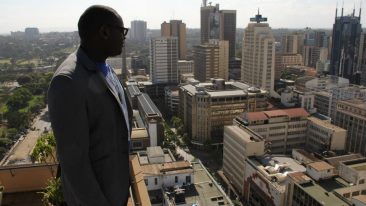Usuk County MP Proscovia Oromait Alengot at Parliament recently. She says she is not bothered by her critics. PHOTO by Geoffrey Sseruyange.
By JOHN K. ABIMANYI jabimanyi@ug.nationmedia.com
Posted Monday, October 8 2012 at 01:00
For a fresh Member of Parliament barely out of her teens, Proscovia Oromait Alengot is learning the ways of her trade pretty fast.
Hardly a month after she was elected the Usuk County MP in Katakwi District, Eastern Uganda, Alengot is already a deft hand in the political art of elusiveness. Maybe it is in the DNA of “the people of people”.
This is probably the reason, to this date, a sense of mystery still surrounds the youngest MP in Africa.
Alengot has evaded interviews with journalists through persistent postponing, cancellation, rescheduling of appointments, or simply declaring herself unavailable.
In one incident, she picked up the phone and, in the midst of playful banter in the background, she said she was attending a prayer service.
In just the space of three months, she has had to cope with the transformation of a simple girl waiting to join university to being the subject of flashing cameras and a star in political rallies, a wacky world where shrewdness is essential for survival. And not forgetting that she had to mourn the loss of her father in between.
Today, as ordinary 19-year-old girls the world over invest their energies into starting university education and launching an initial bid at a career, Proscovia Oromait Alengot, now Hon Alengot, spends her time between university theatres and Parliament.
Alengot rose out of the wilderness of obscurity after her father, Michael Oromait, died of hypertension on the morning of Saturday July 21, this year. She succeeded him as MP for Usuk County.
Some people say that Alengot was fronted and talked into the idea by the ambitious district woman member of Parliament and minister for Education, Maj Jessica Alupo. But Alengot says she did it under her own steam.
Newspapers have quoted family members as saying that Alengot took an interest in the requirements for one to become an MP after her father’s death.
To many onlookers, the 19-year-old’s candidature was a big joke. Few even gave her a chance. After all, she would go nowhere, they thought.
But Alengot had powerful backers, one of them being President Yoweri Museveni, who campaigned for her. She enjoyed photo ops with the big man, appearing dressed in oversized traditional busuti (dresses) alongside the president during the campaigns.
In the end, she won 54.2 per cent of the vote.
It is after the election results were announced that, for many, the reality sank in; Uganda now had a teenage member of Parliament. Critics were quick to spread their opinions of disagreement in all manner of forums, especially online.
“I pity my country Uganda and what has become of it. This little gal knows neither politics nor the problems affecting her people. She should be at school chasing a career,” commented one Tabbyusa.
Others, however, offered their support. “What are you talking about? That is what we want Uganda to be. If she can pay taxes and serve in the military, why not serve her country?” one Jackson quipped.
Political scientists and psychologists agreed that her age cannot be a hindrance.
Robert Tabaro, who teaches political science and public administration at Kyambogo University, says anybody aged 19 is old enough to legislate at a national level if they have an interest in politics.
source-http://www.nation.co.ke/Features/DN2/At+19+this+girl+is+Africas+youngest+MP+/-/957860/1527356/-/1288ghl/-/index.html







